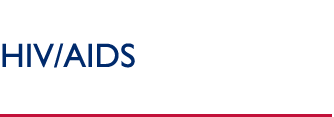Vulnerable Children in the Developing World
|
 |
|
Vulnerable children spanning a range of ages stand in front of their village dwelling.
Source: Mary Jordan/USAID |
|
Disease, conflict and violence, natural disaster, and severe economic strife leave millions of the world’s young people without parents or caregivers. Millions of children in the developing world are orphaned in some capacity and have lost the care and support of one or both parents. More alarmingly, children all across the globe are living fragile lives, vulnerable to a multitude of adversities – disease, death, conflict, poverty, and other dangers. As such, they face serious risks to their survival and well-being.
The U.S. Agency for International Development (USAID) is the lead U.S. Government (USG) agency supporting Public Law 109-95, the Assistance for Orphans and Other Vulnerable Children in Developing Countries Act [PDF, 72KB], signed in November 2005 and enacted because of the need to more effectively coordinate USG assistance for orphans and vulnerable children, particularly – but not limited to – those affected by HIV and AIDS. Accordingly, the objective of USG assistance to highly vulnerable children (HVC) in developing countries is to open up opportunities for them to lead healthy, productive lives. Read more about USAID’s efforts to support highly vulnerable children.
Second Annual Report to Congress – Supporting Highly Vulnerable Children: Progress, Promise, and Partnership - December 2008 [PDF, 2.3MB]
This report summarizes activities USG agencies, including USAID, are undertaking together to improve programming for highly vulnerable children. In 2007–2008, the USG spent in excess of $5.9 billion on foreign assistance programs to improve the lives of the world’s most vulnerable children and their families. USAID has dedicated significant time and human resources to this effort.
The U.S. Government Special Advisor for Orphans and Vulnerable Children, First Annual Report to Congress: Highly Vulnerable Children: Causes, Consequences, and Actions - August 2007 [PDF, 2.2MB] |
Children and Youth Affected by HIV/AIDS
 |
| |
In India, children at high risk of contracting HIV learn an innovative dance form to boost self-confidence and reduce stigma associated with the disease.
Source: USAID/India |
Worldwide, 2 million children under 15 are living with HIV/AIDS, and 370,000 were newly infected in 2007. What’s more, generations of children are growing up orphaned and vulnerable. More than 14 million children have lost one or both parents to HIV/AIDS, and it is estimated that these numbers will almost double over the next 10 years. Support for orphans and vulnerable children is critical as they are at an increased risk of psychological distress, economic hardships, exploitation, trafficking, and HIV infection. USAID activities include material support such as food, school fees, shelter, and clothing, in addition to economic strengthening, counseling, psychological support, and community care. Learn more about USAID’s efforts to support children and youth infected and affected by HIV/AIDS.
USAID Success Stories on Children Affected by HIV/AIDS
|


